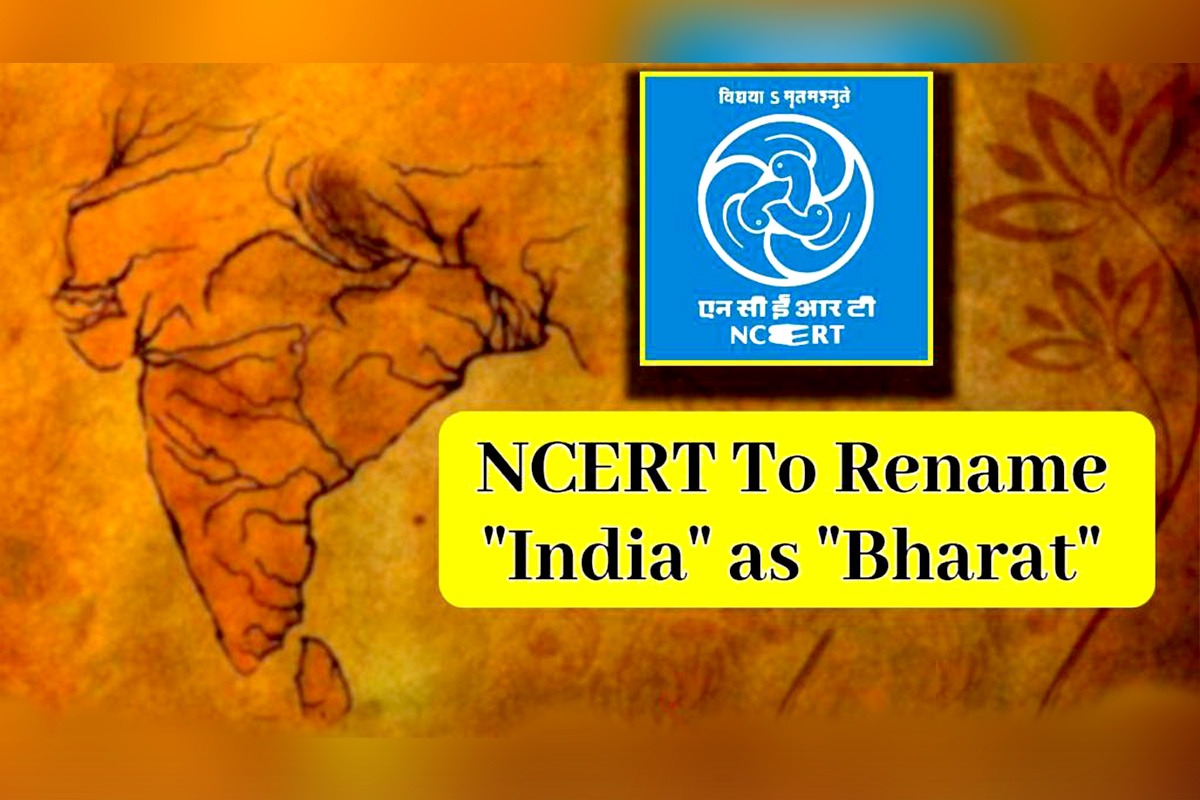

However, in recent years, the term ‘Bharat’ has been at the centre of a contentious debate over its inclusion in NCERT (National Council of Educational Research and Training) textbooks. It is essential to understand the importance of embracing ‘Bharat’ in our textbooks and why this is not just a matter of historical revisionism but a constitutional imperative.
Firstly, let us establish the notion that our Constitution begins with the words, “India, that is Bharat.” This acknowledgment underscores the importance of both names in referring to our great nation. It is not merely a matter of semantics but a constitutional recognition of the coexistence and relevance of ‘India’ and ‘Bharat.’
FLASH: #Delhi #BJP president Virendra Sachdeva leads the party’s demonstration in the national capital against Bihar CM #NitishKumar for his crass comments on women.
Reports @urvashikhona pic.twitter.com/XMvA1DcQhF
— The New Indian (@TheNewIndian_in) November 8, 2023
Our founding fathers recognised the historical, cultural, and linguistic diversity that ‘Bharat’ represents and harmoniously blended it with ‘India’ to create a unified identity that reflects our pluralistic society.
Moreover, it is crucial to acknowledge that the term ‘Bharat’ has a legacy dating back centuries, with roots in our ancient scriptures and epics. It is a symbol of our rich cultural heritage and an essential part of our civilisational identity.
Neglecting ‘Bharat’ in our textbooks is akin to disregarding a substantial portion of our heritage, and this dilution does a disservice to our collective memory.
The objections raised against the inclusion of ‘Bharat’ in NCERT textbooks are rooted in an oversimplified understanding of history and culture. It is not about erasing ‘India’ but enriching the educational content to reflect the multifaceted nature of our country. By embracing ‘Bharat,’ we create a more comprehensive and accurate narrative that encapsulates the historical continuum of our nation.
If we were to recognise ‘Bharat’ in NCERT textbooks, it would contribute to a more holistic understanding of our identity, history, and culture. Our children would be better equipped to appreciate the multifarious aspects of their heritage, and this, in turn, would foster a stronger sense of national pride and unity.
The debate surrounding the inclusion of ‘Bharat’ in NCERT textbooks is not merely a matter of semantics but a constitutional imperative. Our Constitution acknowledges both ‘India’ and ‘Bharat,’ and by emphasising ‘Bharat,’ we honour our rich cultural heritage and civilisational identity.
Revisionism in our textbooks should not aim to erase our history but to provide a more comprehensive and accurate narrative. Embracing ‘Bharat’ in our textbooks is a step toward enriching the education of our children, fostering a deeper sense of national identity, and preserving our cultural heritage. It is time for us to recognise the constitutional significance of ‘India, that is Bharat,’ and ensure that our textbooks do justice to this legacy.